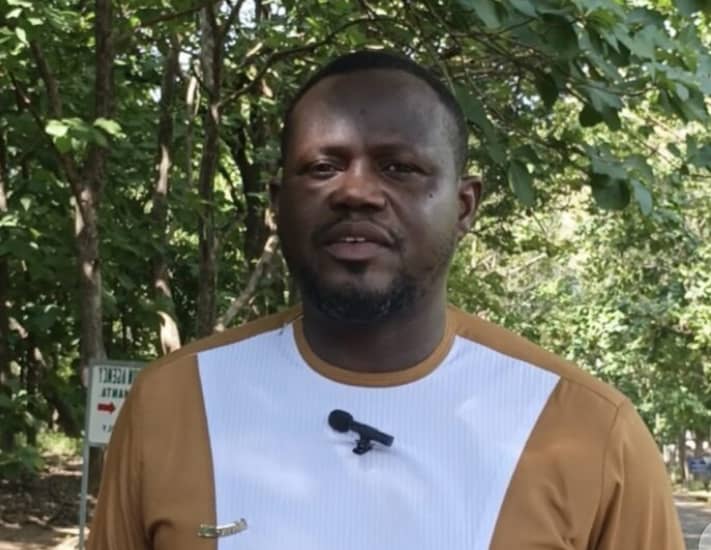The Nkwanta South Municipal Assembly in Ghana is grappling with a significant revenue shortfall, jeopardizing its ability to fund essential services and development projects. Mr. Joseph Antwi Awal, the Municipal Chief Executive (MCE), expressed deep concern over the situation, revealing that the Assembly has collected only GHS 300,000 out of a projected target of GHS 550,000 for 2025. This substantial deficit of GHS 250,000 casts a shadow over the Assembly’s financial stability and its capacity to deliver on its mandate to the community. The MCE attributes the revenue shortfall to a combination of factors, primarily inadequate tax collection mechanisms and the protracted conflict that has plagued the region. The ongoing conflict has disrupted economic activities, displaced residents, and created an atmosphere of uncertainty, making it challenging to effectively mobilize revenue.
The inadequacy of the current tax collection mechanisms further exacerbates the situation. The existing systems are seemingly inefficient, hindering the Assembly’s ability to capture the full revenue potential of the municipality. This inefficiency translates to lost revenue that could otherwise be channeled towards critical development projects and the provision of essential services. The confluence of these challenges, the conflict and inefficient tax collection, paints a precarious picture for the Assembly’s financial health and its capacity to meet the needs of its constituents. Without a robust revenue stream, the Assembly’s ability to execute its development agenda and provide essential services is severely compromised. The MCE warned that if the revenue shortfall persists, the consequences could be dire, potentially leading to a decline in service delivery and a stagnation of development initiatives.
Recognizing the urgency of the situation, the MCE has proposed a series of measures to address the revenue challenge and bolster the Assembly’s financial standing. Chief among these proposals is the establishment of a dedicated task force to meticulously examine the existing tax system and identify its weaknesses. This task force would be tasked with conducting a comprehensive assessment of the tax collection processes, pinpointing areas of inefficiency, and recommending concrete strategies for improvement. This targeted approach aims to enhance the effectiveness of revenue mobilization and ensure that all potential revenue streams are optimally tapped. The MCE also emphasized the importance of public education campaigns to raise awareness among residents about their civic responsibilities, including the prompt and full payment of taxes. These campaigns would aim to foster a culture of tax compliance and underscore the crucial role that taxes play in funding local development.
Furthermore, the MCE suggested leveraging the existing network of zonal councils to streamline the tax collection process. By decentralizing tax collection through the zonal councils, the Assembly aims to improve accessibility and efficiency, making it easier for residents to fulfill their tax obligations. This localized approach would also enable more effective monitoring and enforcement of tax compliance at the community level. In addition to these strategic interventions, the MCE made a fervent appeal to the residents of Nkwanta South to prioritize peace and stability in the region. He emphasized that development can only flourish in a peaceful environment and urged residents to work together to resolve the ongoing conflict.
Mr. Edward Yilegne, the Presiding Member of the Nkwanta South Assembly, echoed the MCE’s concerns and underscored the detrimental impact of the conflict on revenue mobilization. He emphasized that the conflict affects nearly every facet of life in the municipality, disrupting economic activities, hindering development, and undermining the Assembly’s capacity to deliver essential services. Mr. Yilegne joined the MCE in urging residents to support the Assembly’s revenue mobilization efforts by fulfilling their tax obligations. He stressed that the prompt payment of taxes is not merely a civic duty but a crucial investment in the development of the community. He emphasized that every tax cedi collected contributes directly to the provision of essential services, the construction of vital infrastructure, and the overall betterment of the municipality.
The ongoing conflict in Nkwanta South poses a serious threat to the municipality’s development prospects. It has disrupted the local economy, displaced residents, and created an environment of uncertainty, making it challenging for the Assembly to mobilize the revenue needed to fund essential services and development projects. The precarious financial situation of the Assembly underscores the urgent need for a concerted effort to address the root causes of the conflict and create a conducive environment for peace and development. The proposed interventions, including the establishment of a task force to improve tax collection mechanisms, public education campaigns to promote tax compliance, and the decentralization of tax collection through zonal councils, offer a promising roadmap for strengthening the Assembly’s financial position. However, the success of these initiatives hinges on the active participation and cooperation of the residents of Nkwanta South. Their commitment to peace, their willingness to fulfill their tax obligations, and their active engagement in local governance are crucial to overcoming the current challenges and building a prosperous future for the municipality.














